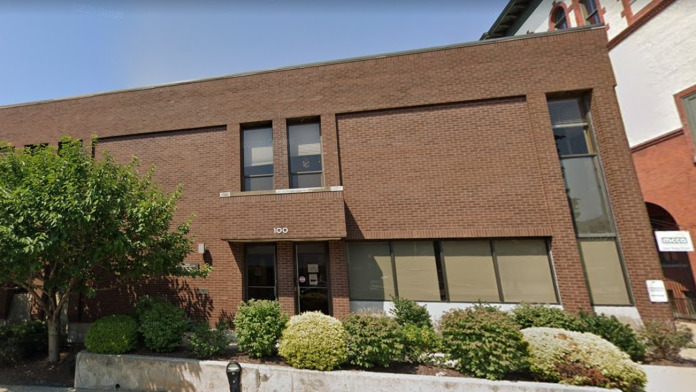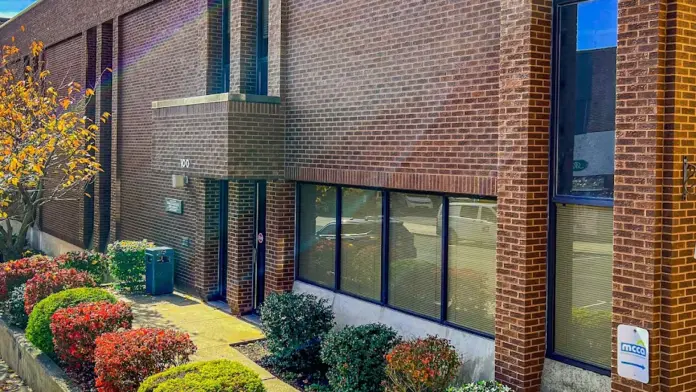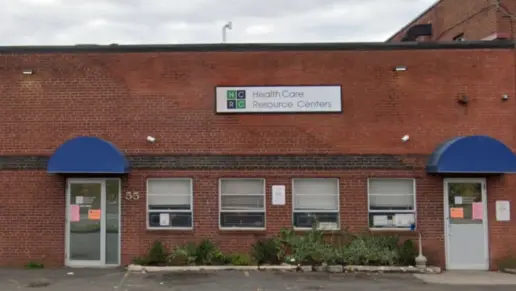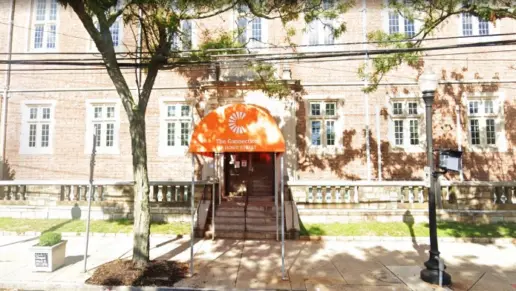The counsels were very impatient and would come in to work looking to argue with patients. They were never open to other peoples opinions it was always they are right and you are wrong. The work sheets were done so carelessly that they didnt even have enough for everyone eve ...
About MCCA – Derby Outpatient Clinic
Midwestern Connecticut Council of Alcoholism is a leading provider of substance use treatment and evaluations in western Connecticut. They also help people with dual diagnosis. They’ve facilities across Fairfield, New Haven and Litchfield counties. This Derby location is among their seven outpatient clinics.
Derby is part of Naugatuck Valley. It is Connecticut’s smallest municipality by area. You should definitely visit the Riverview Park during your healing journey in this city. It’s one of the key natural attractions here offering great view of the Housatonic and Naugatuck Rivers.
The clinic is just 12 miles northwest of New Haven. They’re known for low cost and quality substance use treatment. Both standards outpatient and intensive outpatient level of care are available to help people with different symptoms. These programs teach you real life skills to deal with things like stress or anger that contribute to substance misuse.
Adults seeking a higher level of care but unable to enter residential treatment will find the intensive outpatient program very helpful. It involves a more rigorous treatment in group and individual settings. The focus is on building healthy coping skills to support independent living and avoid relapse. Most of the therapy groups are gender specific and trauma informed. This helps you feel safe and stay focused while getting the support you really need.
They offer anger management classes, relapse prevention sessions and early intervention groups. These programs include evening and day sessions to fit your schedule. You can also receive medication assisted treatment here if you’re dealing with opioid addiction or alcoholism. This means using meds approved by the FDA to alleviate cravings and manage withdrawal symptoms.
This is then backed up with counseling to ensure “whole person” healing. They can prescribe either Suboxone, Naltrexone, Vivitrol or Subutex. This broad choice of meds ensure therapy is tailored to your unique condition.
They even have a special program for pregnant and postpartum women dealing with substance use or dual diagnosis. This program is called PROUD. It involves various personalized, gender sensitive and trauma informed services that help these women heal. Services may include linkage to community medical providers, employment and housing support. This is in addition to substance use treatment.
The facility provides a full continuum of impaired driver programs for DUI or DWI offenders. This includes court ordered evaluation, intervention and treatment. They work with the Connecticut Department of Mental Health and Addiction Services to offer pretrial programs for alcohol and drug education.
These jail diversion initiatives normally serve first time offenders.
People struggling with compulsive gambling habit can also benefit from the bettor choice gambling program offered here. This includes education and counseling to help you address the psychology behind your gambling addiction. Additionally, you’ll learn practical skills to manage the triggers and avoid relapsing. Through healthy coping skills you can take control of your life.
Latest Reviews
Rehab Score
Gallery


Location
Accepted Insurance
Other Forms of Payment
Private insurance refers to any kind of healthcare coverage that isn't from the state or federal government. This includes individual and family plans offered by an employer or purchased from the Insurance Marketplace. Every plan will have different requirements and out of pocket costs so be sure to get the full details before you start treatment.
Self-pay involves paying for treatment out of your own pocket. You can use savings or credit, get a personal loan, or receive help from family and friends to fund your treatment. If you don't have insurance or your insurance plan doesn't cover a specific program, self-pay can help ensure you still get the care you need.
Financial aid can take many forms. Centers may have grants or scholarships available to clients who meet eligibility requirements. Programs that receive SAMHSA grants may have financial aid available for those who need treatment as well. Grants and scholarships can help you pai for treatment without having to repay.
Sliding scale payments are based on a client's income and family size. The goal is to make treatment affordable to everyone. By taking these factors into account, addiction recovery care providers help ensure that your treatment does not become a financial burden to you or your family, eliminating one barrier to care.
Military members, veterans, and eligible dependents have access to specific insurance programs that help them get the care they need. TRICARE and VA insurance can help you access low cost or no cost addiction and mental health treatment. Programs that accept military insurance often have targeted treatment focused on the unique challenges military members, veterans, and their families face.
Medicaid is a state based program that helps lower-income individuals and families pay for healthcare. Medicaid covers addiction treatment so those enrolled can use their coverage to pay for rehab. When a program accepts Medicaid the client often pays very little or nothing out of their own pocket.
Medicare is a federal program that provides health insurance for those 65 and older. It also serves people under 65 with chronic and disabling health challenges. To use Medicare for addiction treatment you need to find a program that accepts Medicare and is in network with your plan. Out of pocket costs and preauthorization requirements vary, so always check with your provider.
Addiction Treatments
Levels of Care
Treatments
The goal of treatment for alcoholism is abstinence. Those with poor social support, poor motivation, or psychiatric disorders tend to relapse within a few years of treatment. For these people, success is measured by longer periods of abstinence, reduced use of alcohol, better health, and improved social functioning. Recovery and Maintenance are usually based on 12 step programs and AA meetings.
Drug rehab in Connecticut provides the professional support that is often necessary to break free from drug dependency. With proper treatment, individuals can make changes that restore balance and health to their lives and achieve long-term recovery.
Many of those suffering from addiction also suffer from mental or emotional illnesses like schizophrenia, bipolar disorder, depression, or anxiety disorders. Rehab and other substance abuse facilities treating those with a dual diagnosis or co-occurring disorder administer psychiatric treatment to address the person's mental health issue in addition to drug and alcohol rehabilitation.
A combined mental health and substance abuse rehab has the staff and resources available to handle individuals with both mental health and substance abuse issues. It can be challenging to determine where a specific symptom stems from (a mental health issue or an issue related to substance abuse), so mental health and substance abuse professionals are helpful in detangling symptoms and keeping treatment on track.
Opioid rehabs specialize in supporting those recovering from opioid addiction. They treat those suffering from addiction to illegal opioids like heroin, as well as prescription drugs like oxycodone. These centers typically combine both physical as well as mental and emotional support to help stop addiction. Physical support often includes medical detox and subsequent medical support (including medication), and mental support includes in-depth therapy to address the underlying causes of addiction.
Programs




Clinical Services
Dialectical Behavior Therapy (DBT) is a modified form of Cognitive Behavioral Therapy (CBT), a treatment designed to help people understand and ultimately affect the relationship between their thoughts, feelings, and behaviors. DBT is often used for individuals who struggle with self-harm behaviors, such as self-mutilation (cutting) and suicidal thoughts, urges, or attempts. It has been proven clinically effective for those who struggle with out-of-control emotions and mental health illnesses like Borderline Personality Disorder.
Group therapy is any therapeutic work that happens in a group (not one-on-one). There are a number of different group therapy modalities, including support groups, experiential therapy, psycho-education, and more. Group therapy involves treatment as well as processing interaction between group members.
In individual therapy, a patient meets one-on-one with a trained psychologist or counselor. Therapy is a pivotal part of effective substance abuse treatment, as it often covers root causes of addiction, including challenges faced by the patient in their social, family, and work/school life.
Trauma therapy addresses traumatic incidents from a client's past that are likely affecting their present-day experience. Trauma is often one of the primary triggers and potential causes of addiction, and can stem from child sexual abuse, domestic violence, having a parent with a mental illness, losing one or both parents at a young age, teenage or adult sexual assault, or any number of other factors. The purpose of trauma therapy is to allow a patient to process trauma and move through and past it, with the help of trained and compassionate mental health professionals.
Whether a marriage or other committed relationship, an intimate partnership is one of the most important aspects of a person's life. Drug and alcohol addiction affects both members of a couple in deep and meaningful ways, as does rehab and recovery. Couples therapy and other couples-focused treatment programs are significant parts of exploring triggers of addiction, as well as learning how to build healthy patterns to support ongoing sobriety.
Research clearly demonstrates that recovery is far more successful and sustainable when loved ones like family members participate in rehab and substance abuse treatment. Genetic factors may be at play when it comes to drug and alcohol addiction, as well as mental health issues. Family dynamics often play a critical role in addiction triggers, and if properly educated, family members can be a strong source of support when it comes to rehabilitation.
Nicotine Replacement Therapy (NRT) is a way of getting nicotine into the bloodstream without smoking. It uses products that supply low doses of nicotine to help people stop smoking. The goal of therapy is to cut down on cravings for nicotine and ease the symptoms of nicotine withdrawal. Their free program for stop smoking include small groups, individual counseling and Nicotine Replacement Therapy.
Amenities
-
Private Setting
Accreditations

The Commission on Accreditation of Rehabilitation Facilities (CARF) is a non-profit organization that specifically accredits rehab organizations. Founded in 1966, CARF's, mission is to help service providers like rehab facilities maintain high standards of care.
CARF Accreditation: Yes
Accreditation Number: 251946

The Substance Abuse and Mental Health Services Administration (SAMHSA) is a branch of the U.S. Department of Health and Human Services. Established in 1992 by congress, SAMHSA's mission is to reduce the impact of substance abuse and mental illness on American's communities.
SAMHSA Listed: Yes
Contact Information
100 Elizabeth Street
Derby, CT 06418






